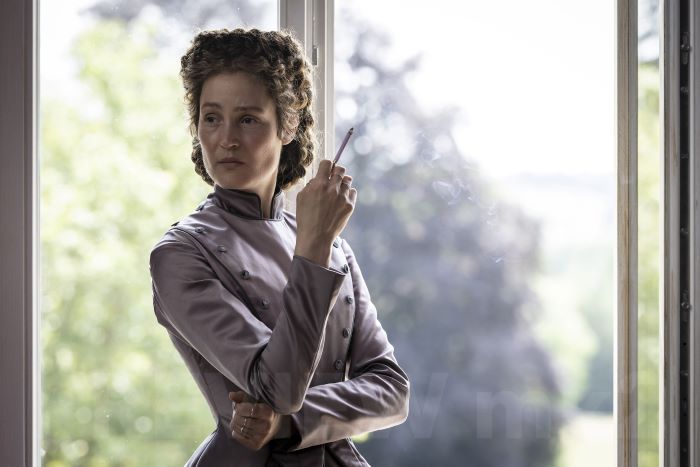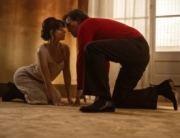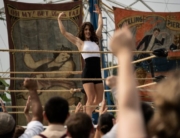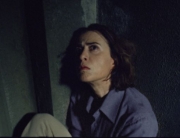Empress Elisabeth of Austria lived a life so fascinating that she has been the subject of countless movies, operettas, novels, and television series. Perhaps the most famous is the kitschy “Sissi” films made in the 1950s, starring a teenage Romy Schneider as the wholesome and romantic princess.
Now along comes Austrian writer/director Marie Kreutzer’s contribution, the brash biopic Corsage, which dramatizes an eventful year in the empress’s life (1877–’78), when she turned 40 and did not want to accept that hers was an ornamental role, that her interests and loves were secondary to what her husband, the Emperor Franz Joseph, wanted, and she could play the game or not—the latter at her own emotional peril.
Kreuzter dramatizes in exceedingly minute detail Elisabeth’s restlessness at the era’s limitations for women, even for an empress. The corsage, or corset, of the title has a double meaning: the literal one of Elisabeth’s trying to stay slim through a strict diet and pulling the corset’s strings as tightly as possible and also as a metaphor—there’s little room to maneuver in such a restrictive cultural and social environment. It’s no coincidence that the film opens with Elisabeth underwater in a bathtub, holding her breath as long as she can, one of several rituals she forces herself to undergo. The script’s sly sense of humor immediately comes to the fore when two servants give her two different underwater times.
Corsage respects some of the costume epic’s conventions—there are many shots of gorgeous landscapes and the chilly, vast, and mostly empty palace rooms that Elisabeth, Franz and their children move through—but Kreutzer subverts those as well. For all the estimable contributions of cinematographer Judith Kaufmann, production designer Martin Reiter, and costume designer Monika Buttinger, the visual effect is far more intimate and unpredictable than usual.
Kaufmann’s handheld camerawork pries into the intimacies of Elisabeth’s life as queen, wife, and mother, so much so that one can almost smell the cigarettes that she always seems to be smoking. Elisabeth has never made peace with what is expected of her, to the point that she risks embarrassing her young daughter when they visit wounded soldiers and Elisabeth lights a cigarette for one bedridden—and surprised—young man and gets into bed next to him and chats with him while enjoying their smoke together. Nevertheless, she continuously pulls rank, expecting deferment and respect based on her royal title.
In Kreutzer’s previous film, the insightful character study The Ground Beneath My Feet, Valerie Pachner gave a persuasive portrayal of a heroine with myriad personal and professional problems. Corsage also examines a fragile woman’s psyche, allowing the Luxembourgian actress Vicky Krieps, a performer who never strikes a false note, to dominate the screen with a physically and psychologically transfixing performance. With intense and extraordinary work in both this and Mathieu Amalric’s Hold Me Tight, 2022 should be considered the year of Krieps. (She recently won the European Actress prize at the European Film Awards.)
Through Krieps’s fearlessness, Kreutzer brings this heavily embalmed historical character to thrilling new life, but her own embellishments also help. The film has been filled with deliberate anachronisms in its set design (20th century telephones, florescent lighting) and in the music—torch ballads sung by French songwriter Camille, who contributes her song, “She Was,” to the proceedings—that reach their peak when Elisabeth listens to a harp plucking out the Rolling Stones’ classic “As Tears Go By.”
That none of this pulls us out of the story is to Kreutzer’s credit; she has built the film steadily around Elizabeth’s rebellious obstinacy. It all serves as a setup for the final images, when the director jettisons the historical truths of the empress’s biography and gives Elisabeth an ending of her own volition, rather than her actual assassination some 20 years later. By allowing Elisabeth to have agency in how her life turns out, Corsage explodes myths that had long ago hardened into fact.

















Leave A Comment